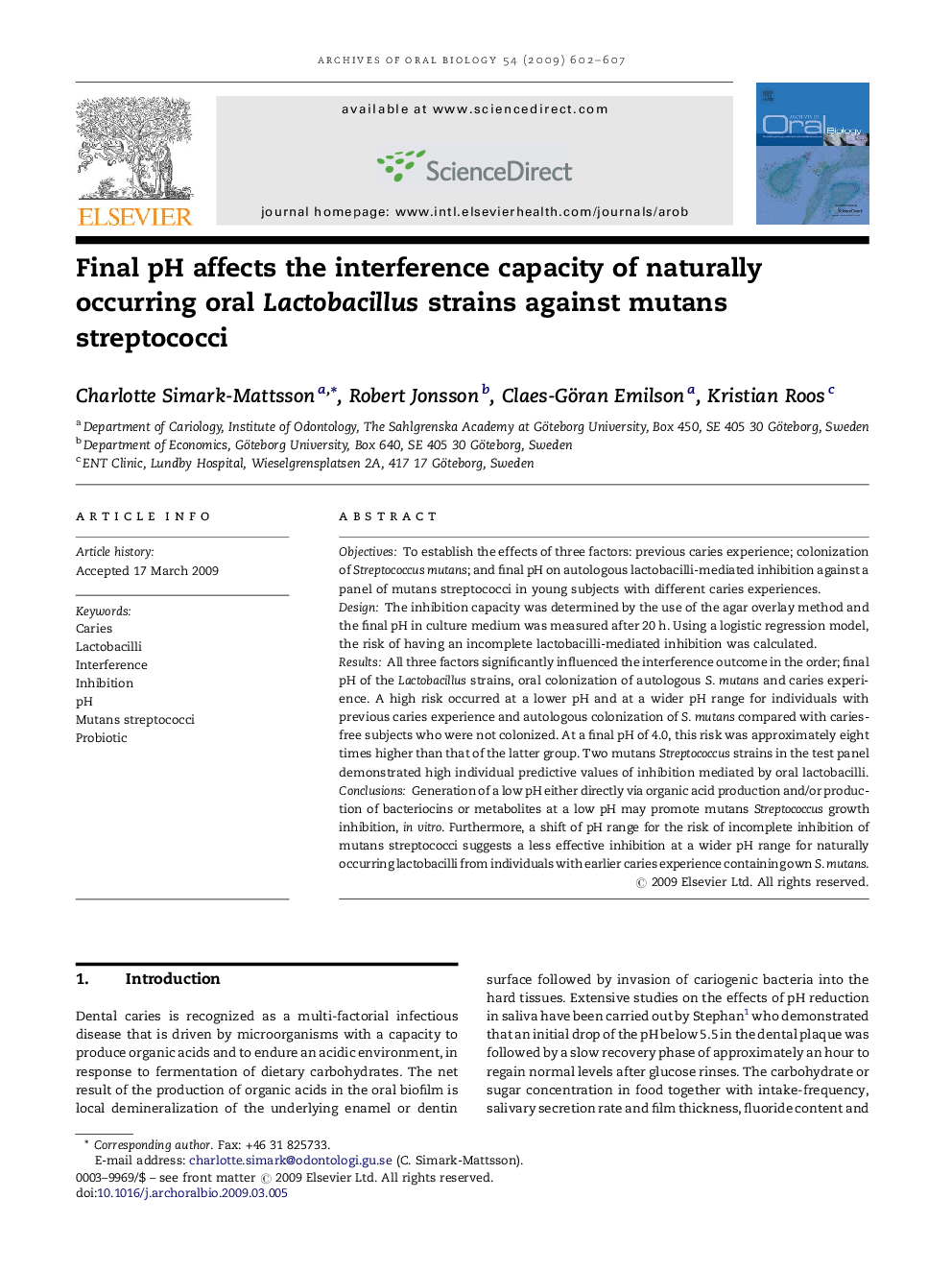| Article ID | Journal | Published Year | Pages | File Type |
|---|---|---|---|---|
| 3121280 | Archives of Oral Biology | 2009 | 6 Pages |
ObjectivesTo establish the effects of three factors: previous caries experience; colonization of Streptococcus mutans; and final pH on autologous lactobacilli-mediated inhibition against a panel of mutans streptococci in young subjects with different caries experiences.DesignThe inhibition capacity was determined by the use of the agar overlay method and the final pH in culture medium was measured after 20 h. Using a logistic regression model, the risk of having an incomplete lactobacilli-mediated inhibition was calculated.ResultsAll three factors significantly influenced the interference outcome in the order; final pH of the Lactobacillus strains, oral colonization of autologous S. mutans and caries experience. A high risk occurred at a lower pH and at a wider pH range for individuals with previous caries experience and autologous colonization of S. mutans compared with caries-free subjects who were not colonized. At a final pH of 4.0, this risk was approximately eight times higher than that of the latter group. Two mutans Streptococcus strains in the test panel demonstrated high individual predictive values of inhibition mediated by oral lactobacilli.ConclusionsGeneration of a low pH either directly via organic acid production and/or production of bacteriocins or metabolites at a low pH may promote mutans Streptococcus growth inhibition, in vitro. Furthermore, a shift of pH range for the risk of incomplete inhibition of mutans streptococci suggests a less effective inhibition at a wider pH range for naturally occurring lactobacilli from individuals with earlier caries experience containing own S. mutans.
